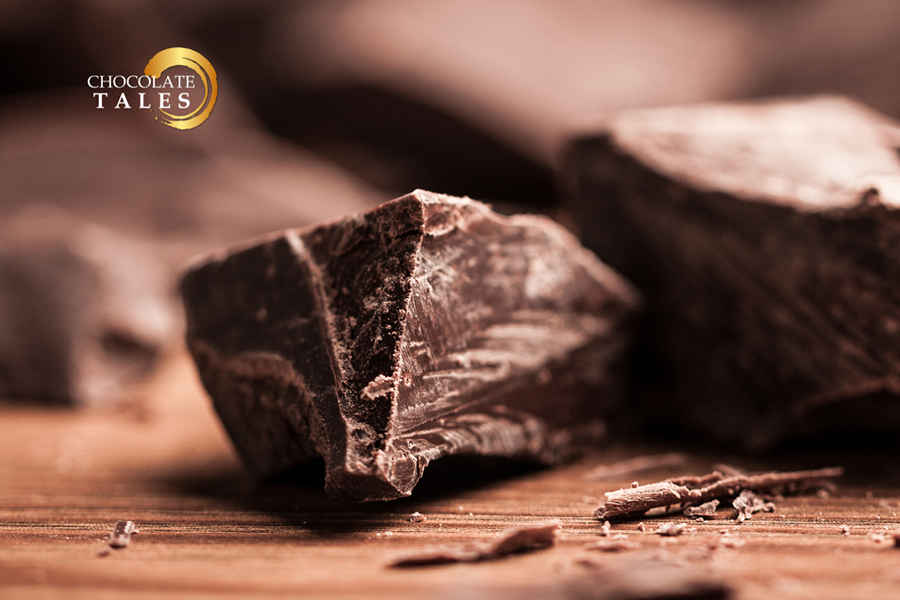Dark Chocolate as Functional Food
Unlike milk chocolate dominated by sugar and dairy fats, dark chocolate contains chiefly cacao beans and cocoa butter. Cacao is exceptionally rich in compounds called flavonoids that function as antioxidants in the body. Antioxidants combat cellular damage from free radicals caused by stress, poor diet, and environmental toxins.
By countering oxidative stress and inflammation, the unique flavonoids in cacao provide measurable benefits for cardiovascular health, cognition, skin protection, and mood enhancement. Quality dark chocolate is a functional food with science-backed advantages when consumed judiciously.
Dark chocolate benefits
Dark chocolate has several beneficial compounds for health. Dark cocoa polyphenols containing at least 70% cocoa solids are antioxidant and anti-inflammatory. Several essential antioxidants in cacao have been linked to improved heart and vascular health. Epicatechin and catechins relax blood vessels, increasing circulation. They also help reduce platelet aggregation, potentially lowering blood pressure and the risk of clots.
Cacao flavonoids additionally help reduce LDL cholesterol oxidation, a key contributor to arterial plaque buildup. Moderate dark chocolate and cocoa chocolates consumption correlates with a lower coronary disease and stroke risk. The high concentration of polyphenols in cacao boosts blood flow and protects endothelial function.
Enhancing Brain Function and Mood
The flavonoid compounds in dark chocolate also offer benefits for the brain. Research indicates they boost blood flow and neuron signalling in memory, learning, and mood regions. Daily chocolate intake has been associated with better cognitive test performance and lower risk of decline as we age. Cocoa antioxidants shield the brain from oxidative damage involved in dementia. Increased blood flow also enhances alertness and focus.
Also, chocolate triggers neurotransmitters like serotonin and endorphins, elevating mood and promoting relaxation. Theobromine in cacao provides a mild stimulant effect as well. The psychoactive effects of chocolate partly explain its popular appeal.
Skin Protection from Antioxidants
Through systemic antioxidant effects, regular dark chocolate consumption helps protect the skin against sun damage, wrinkles, and roughness. Cocoa polyphenols improve skin thickness, hydration, blood flow, and density. It supports healthier, more radiant skin texture. Evidence also suggests that chocolate antioxidants help shield against UV damage and its effects on collagen breakdown. By fighting the free radicals that spur aging at the cellular level, the bioactive compounds in dark chocolate may support skin youthfulness both inside and out.
Optimal Cacao Content for Benefits
Dark chocolate should have at least 70% cacao or cocoa solids for maximum health benefits. It ensures higher levels of antioxidants like flavonoids that can help heart health and cognitive function. Dark chocolate between 70-85% cacao provides antioxidant support without excessive fat and sugar. Above 85%, the chocolate can taste too bitter for most people.
Not All Chocolate is Created Equal
To obtain advantages from chocolate, quality matters. Choose organic, fair-trade dark chocolate with simple, whole-food ingredients. Avoid products with lots of processed additives and flavourings. The purer the chocolate, the more significant the potential benefits.
Also, look for fermented, artisanal chocolate that preserves nuanced cacao taste profiles. Mass-produced chocolate often destroys delicate compounds during processing. Discernment ensures your chocolate choice aligns with your health.
The Secret Is the Flavanols
What exactly makes dark chocolate a surprising superfood? The key is cocoa chocolate flavanols that provide antioxidant and anti-inflammatory benefits. Flavanols are found in the highest amounts in cacao beans before processing. Minimal processing helps preserve these fragile but potent compounds. So savouring intense, artisanal dark chocolate delivers the biggest boost – health and flavorwise. Let the cocoa transport you while also boosting your body and mind.
Conclusion
Rather than just an indulgence, high-quality dark chocolate containing at least 70% cacao may be considered a health food that provides tangible benefits. Its unique antioxidant flavonoids impart protection against heart disease, cognitive decline, skin aging, and mood issues. Choosing pure, minimally processed chocolate optimizes effects. In moderation, dark chocolate is one treat that can also do your body good.
FAQs
Q: Do Vegan Chocolate and vegan cake tend to be lower in calories than regular versions?
While recipes and brands vary, many vegan cakes and chocolates are comparable or slightly lower in calories due to not containing dairy or eggs, though ingredients like nut butter or coconut oil provide healthy fats.
Q: Do heirloom cacao strains make good vegan chocolate?
A: Their diversity and flavour complexity make vintage cacao ideal for high-quality vegan chocolate when processed carefully. Makers partner with farms specializing in rare and organic varietals.
Q: Is vegan chocolate healthier than regular chocolate?
A: It can be if dairy, emulsifiers, and refined sugars are avoided for whole-food ingredients. As with any food, check added sugars and fat content. Cacao itself offers antioxidants and minerals.
Q: How is high-fat vegan milk different?
A: Special processing better retains delicate proteins and nutrients in plant milk, allowing for a richer texture. It makes them better mimic whole dairy milk in vegan chocolate recipes.
Q: What is the difference between lactose free chocolate and dairy free chocolate?
A: Lactose free chocolate does not contain added lactose (milk sugar) but may still have other milk ingredients like milk fat or casein, and dairy free chocolate does not contain any milk or milk derivatives.


